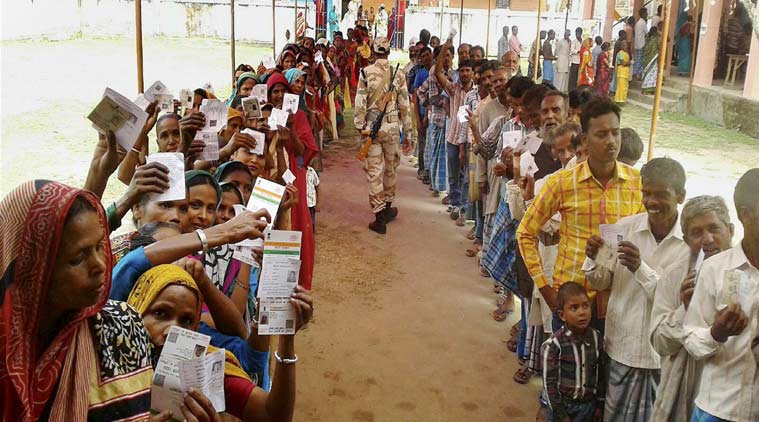A historic overall turnout of 56.8 per cent wasn’t the only first in the Bihar assembly polls that ended Thursday — it will also be remembered for the worst political campaign in the state’s electoral history.

The data also shows a 74 per cent jump in the total number of FIRs registered — 2,067 in 2015 from 1,185 in 2010 — for violations of the Model Code of Conduct, such as offering favours/inducement to voters, holding illegal meetings, defacement of property, etc.
Story continues below this ad
Of those 13 FIRs, five are against RJD chief Lalu Prasad Yadav, two against BJP president Amit Shah and one each against Congress vice-president Rahul Gandhi, Bihar Chief Minister Nitish Kumar, BJP’s Sushil Kumar Modi, Union Minister Giriraj Singh, AIMIM’s Akbaruddin Owaisi, and JD(U) leader Sharad Yadav.
[related-post]
One of the FIRs filed against Shah was for calling Lalu a “chara chor” (fodder thief) while referring to the fodder scam during a speech to BJP workers at Singhaul in Begusarai on September 30. Lalu retaliated a day later, referring to the Gujarat riots and calling Shah a “narbhakshi” (cannibal), for which the former Bihar CM was slapped with an FIR.
In the wake of repeated “defiance” of its orders and advisories, the EC has decided to maintain a record of all code violations by political parties, campaigners and candidates since the last Lok Sabha elections. This step, EC sources said, will ensure that habitual violators do not get away with mere censure.
“Currently, we don’t have a consolidated record of the past behaviour of a candidate or a campaigner as far as adhering to the model code is concerned. The record will serve as a ready reckoner to see if, say, a star campaigner has been defying the code repeatedly. The Commission’s decision on a fresh complaint against him or her could be different than issuing a censure,” said a senior EC official, who did not wish to identified.
Story continues below this ad
In Bihar, the EC had urged political parties and their leaders on October 9, halfway through the elections, to observe “restraint” and “decency” in their speeches.
The poll watchdog had expressed “deep anguish” over the tone and tenor of recent political speeches, which it felt were “calculated to cause mutual hatred, disharmony or ill-will and aimed at aggravating differences between different political parties and classes of citizens on the grounds of religion, caste and community”.
But the EC did not ban anyone from campaigning this time, unlike in the 2014 Lok Sabha elections, when it barred Shah and Samajwadi Party leader Azam Khan from campaigning in Uttar Pradesh, and Giriraj Singh in Bihar, for allegedly making inflammatory comments.
The model code lays down guidelines for the conduct of political parties, campaigners and candidates, and is in place from the moment poll dates are announced till the last day of voting — September 9 to November 5, in this case. A code violation is treated as a crime under the Indian Penal Code and other relevant laws.

 In Bihar, the EC had urged political parties and their leaders on October 9, halfway through the elections, to observe “restraint” and “decency” in their speeches.
In Bihar, the EC had urged political parties and their leaders on October 9, halfway through the elections, to observe “restraint” and “decency” in their speeches.






